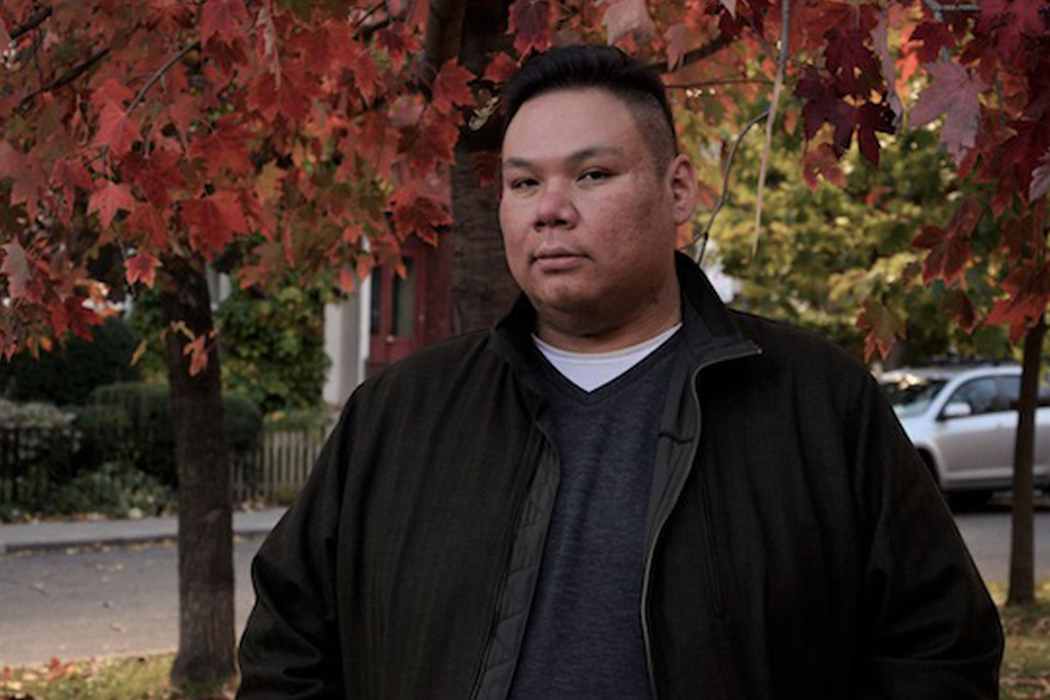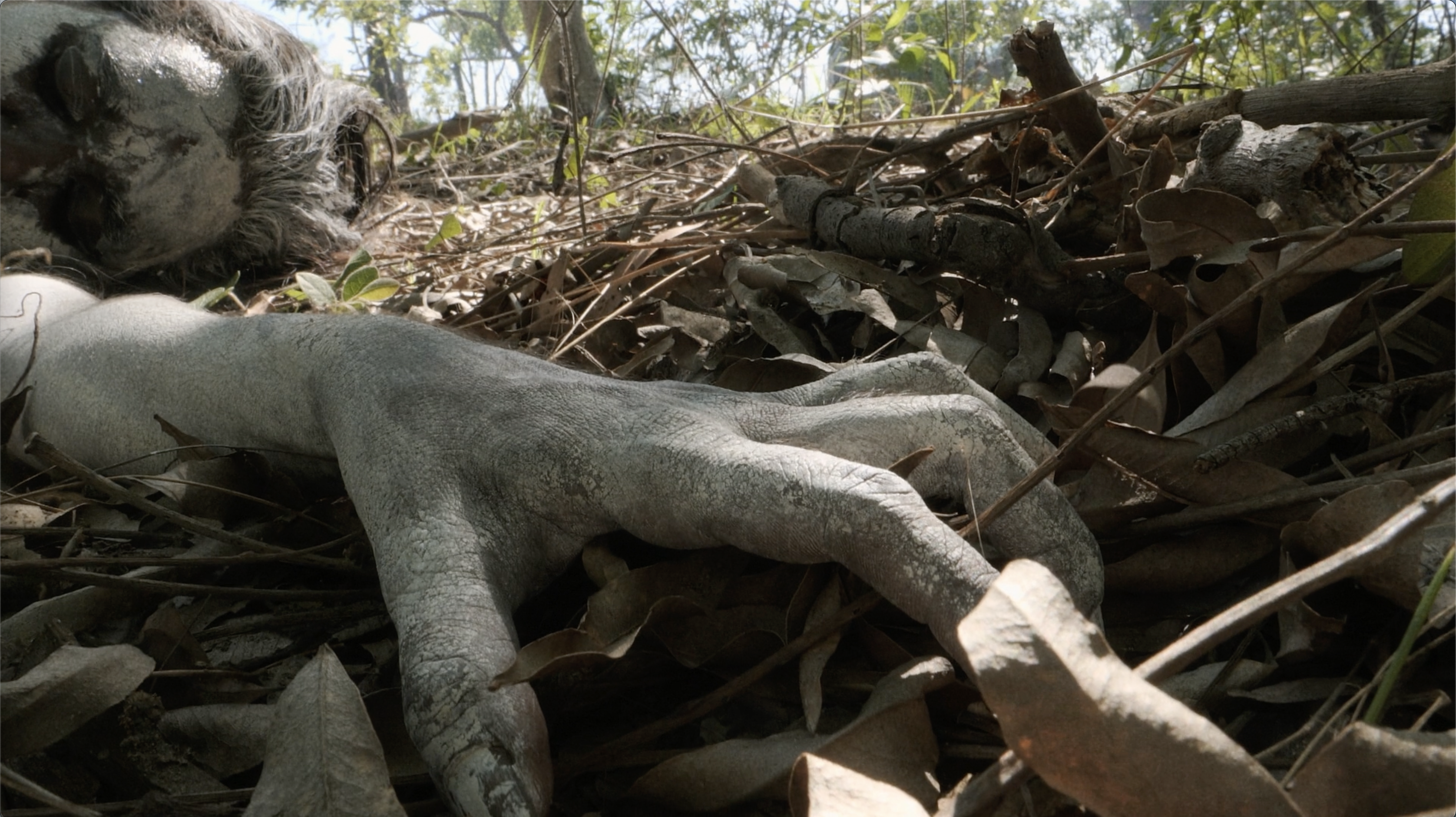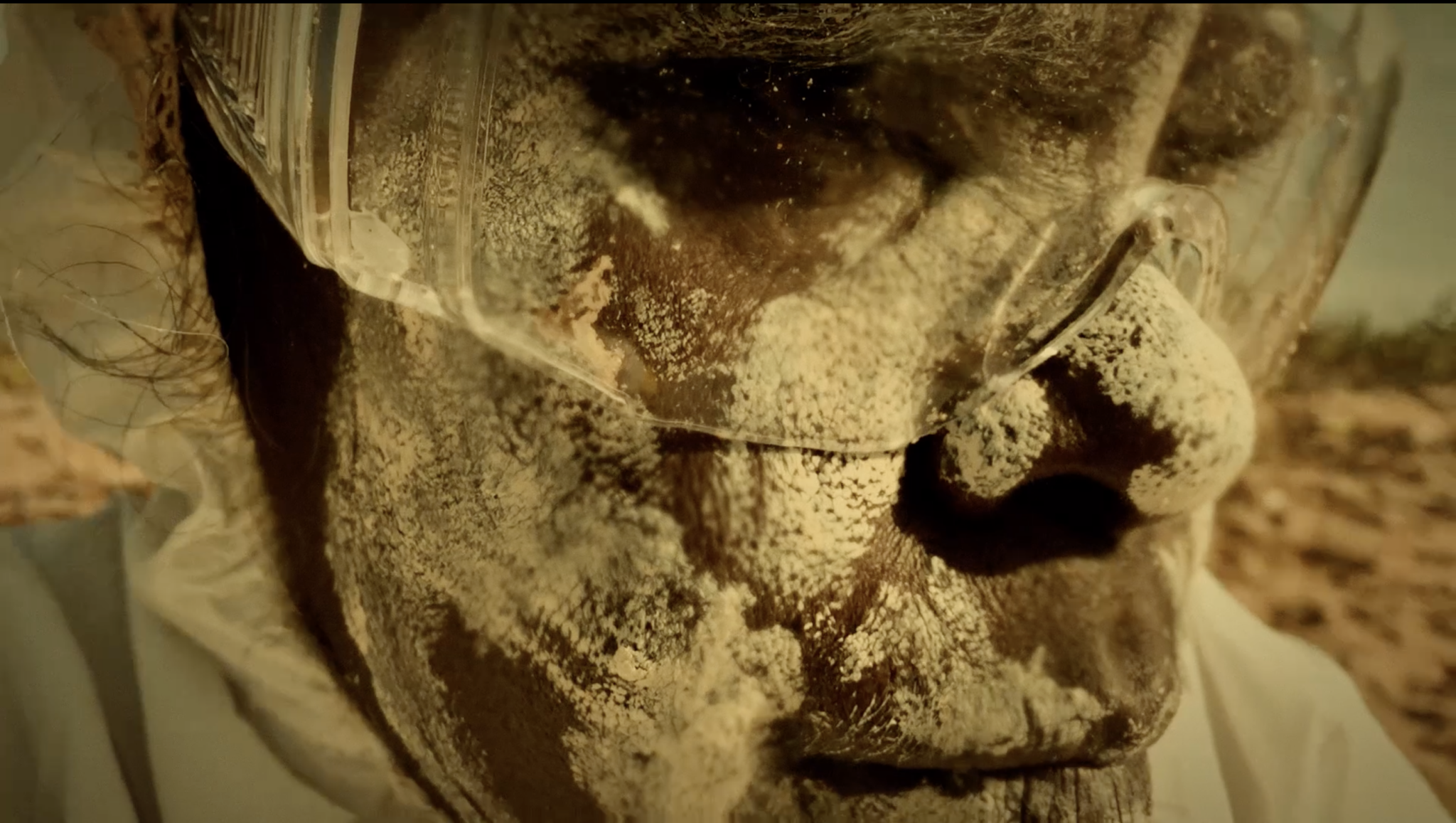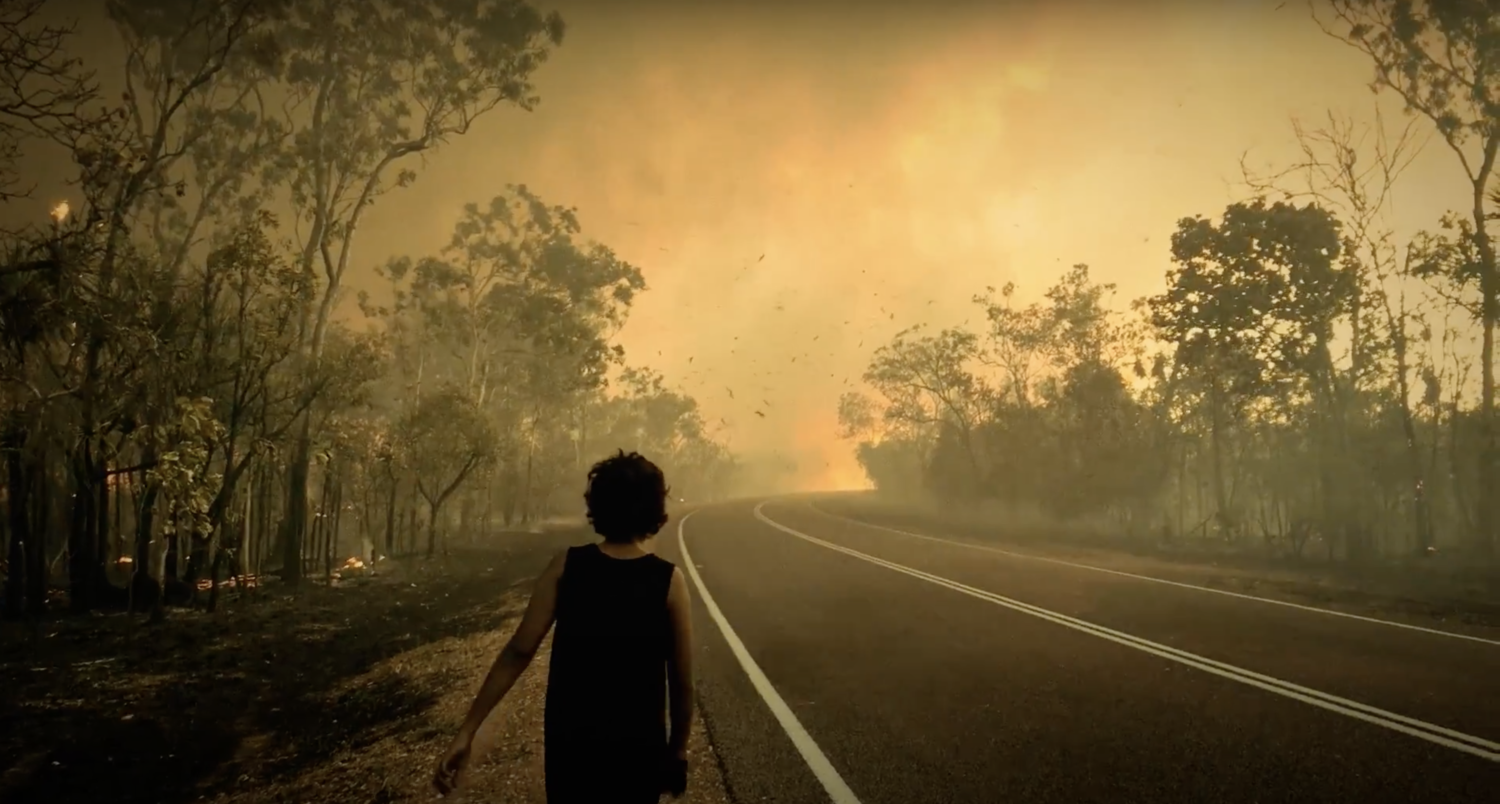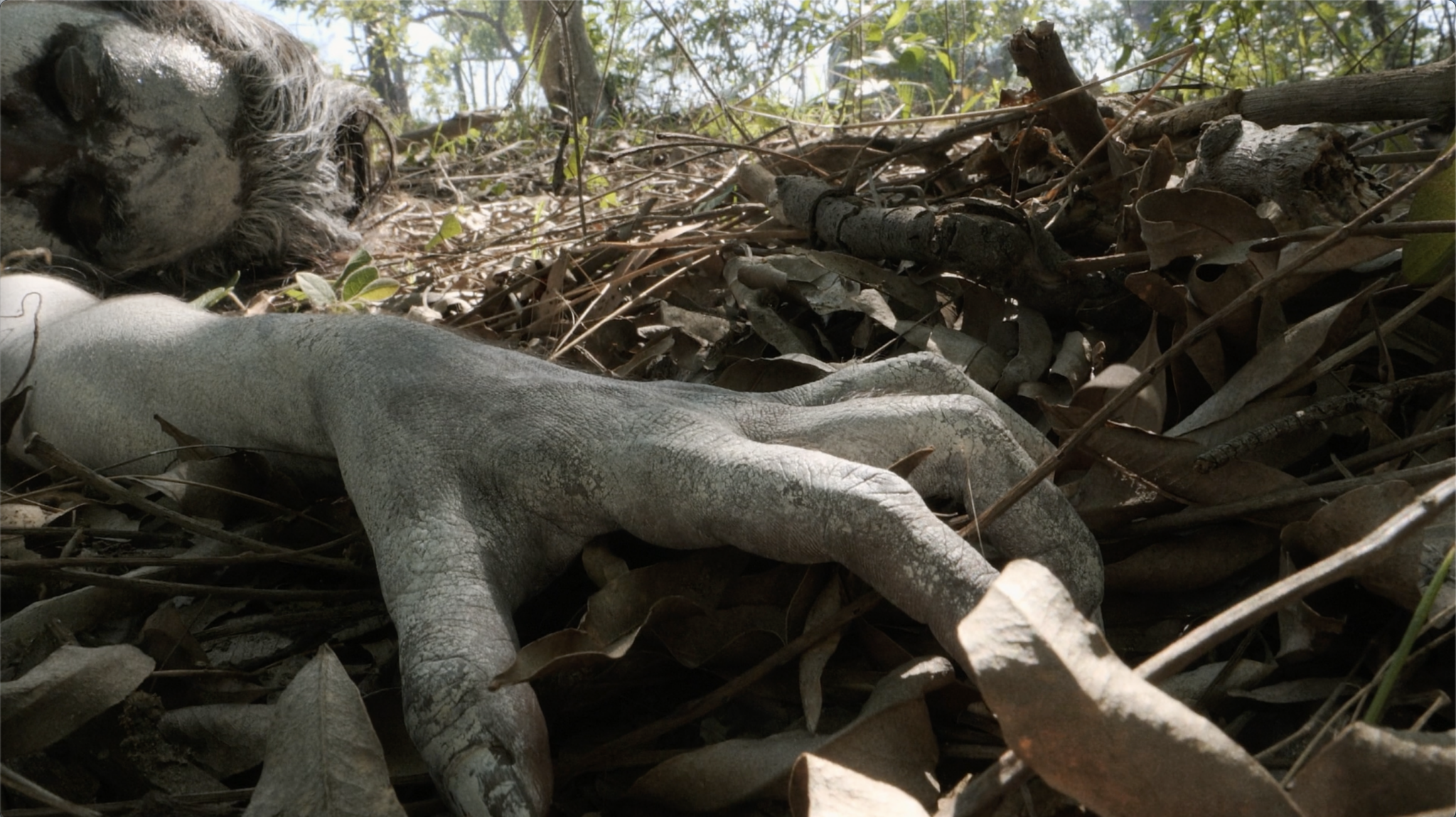The Ancestral Present
The Ancestral Present
Karrabing members attending in Glasgow are Rex Sing, Aiden Sing, Kieran Sing, Elizabeth Povinelli & Benedict Scambary.
Karrabing have had a global influence on the visual arts over the last decade—for the artistic impact of their films, and also the way they collectively make them. This is a chance to see the films, but also and more rarely, to talk about them in person with some of their indigenous members.
As much as it’s a collective, Karrabing is really a whole community, and so its numbers fluctuate. Of its more than 50 current members, four are joining us in Glasgow—Rex, Aiden, Kieren and Beth, along with one of their key institutional allies in negotiating land claims, Ben. Over the course of the evening we’re going to watch some of the films, chat, hang out, think together and try to inhabit something approaching the Karrabing sociality that their films emerge from.
The films attend to the memory and practice of the ancestral present and the ancestral catastrophe that they and their more-than-human world find themselves facing. This catastrophe continues arriving out of the ground that colonialism and racism tilled. They are anti-colonial; sometimes sci-fi, documentary or essayistic; and can be funny, hallucinatory, profound and sensorially intense. They emerge from the collective, intertwined obligations of Indigenous life, mixing fact and fiction, manifesting a situated and specific idea of reality. They foreground slippages and ‘errors’—in continuity of time, place, subject, look, feel—expressing the contingent nature of the Indigenous everyday. Often visual elements or narratives loop, mirroring human and totemic ancestors’ struggle to stay in a place under ongoing colonialism. They might feature mermaids, dreamings, police, settler zombies, or indigenous sovereignty emerging in the toxic landscape settlers polluted but are now afraid to enter.
The films are also a chance to understand Karrabing’s specific analytics of existence, a way of worlding quite different from the colonial ontology and worldview that continues to be coercively and violently imposed on indigenous peoples. Karrabing will be in conversation with Elwood Jimmy.
Elizabeth has characterised those analytics as involving:
- Things exist through an effort of mutual attention. This effort is not in the mind but in the activity of endurance.
- Things are neither born nor die, though they can turn away from each other and change states.
- In turning away from each other, entities withdraw care for each other. Thus the earth is not dying. But the earth may be turning away from certain forms of existence. In this way of thinking the Desert is not that in which life does not exist. A Desert is where a series of entities have withdrawn care for the kinds of entities humans are and thus has made humans into another form of existence: bone, mummy, ash, soil.
- We must de-dramatize human life as we squarely take responsibility for what we are doing. This simultaneous de-dramatization and responsibilisation may allow for opening new questions. Rather than Life and Nonlife, we will ask what formations we are keeping in existence or extinguishing?
Films Screening:
Mermaids, or Aiden in Wonderland, 2019, 26 mins
Set in the not so distant future, Europeans can no longer survive for long periods outdoors in a land and seascape poisoned by capitalism, but Indigenous people seem able to. A young Indigenous man, Aiden, taken away when he was just a baby to be a part of a medical experiment to save the white race, is released into the world of his family. As he travels with his father and brother across the landscape he confronts two possible futures and pasts.
Day in the Life, 2020, 32 mins
Charts an ordinary day in a small rural Indigenous community in which nothing quite works and the authoritative hand of the government is a always constant, shadowy presence over the community. The film comprises five satirically titled vignettes—“Breakfast,” “Play Break,” “Lunch Run,” “Cocktail Hour,” “Takeout Dinner”—illustrating the ways in which the community’s everyday lives are shaped by external influences and constraints and by their insistence on going forward with the ancestors.
Night Fishing with Ancestors, 2023, 24 mins
Following the story of the Macassan traders who, from around 1700, sailed to the Australian coast from Indonesia, to collect trepang (sea cucumbers). This moment of contact between Asia and Indigenous people from Australia that predates European settlement, and that was peaceful and collaborative. This provides a model of contact that undermines the violence of white colonialism. White settlers make an incursion in the film through the figure of the zombie, a reoccurring presence in recent Karrabing films as ‘life turned to Nonlife and transformed into a new kind of species war.
After the Episode the members of Karrabing Film Collective will travel to Skye, to participate in ATLAS Arts School of Plural Futures.
ReadBio
Karrabing Film Collective are regularly cited as one of the most globally influential Indigenous art practices of the last decade. Karrabing consists of over 50 members, all but one Indigenous stakeholders for their land around Anson Bay, north of Darwin, Australia. They approach filmmaking as a mode of self-organisation and a means of investigating contemporary social conditions of inequality. Screenings and publications allow the Karrabing to develop a local artistic language and allow audiences to understand new forms of collective Indigenous agency. Their films represent their lives, create bonds with their land and intervene in global images of Indigeneity.
Their films and installations have been exhibited at MoMA-PS1, New York; Secession, Vienna; Haus der Kunst Munich, Contour Biennale, Mechelen, Belgium; Berlinale Forum Expanded; Hallucinations, Athens at documenta 14; Sydney Biennale; vdrome.org; e-flux supercommunity at the Venice Biennale; Doc’s Kingdom, Lisbon; and Wexner Center for the Arts, Columbus, Ohio, among others. They are the recipients of the Visible Award (2015), Eye Film Prize, Eye Filmmuseum (2022) amongst others.
Elwood Jimmy (nehiyaw/nakawe) is originally from the Thunderchild First Nation, a Nêhiyaw community in the global north (what is today called Canada). For over 25 years, he has played a leadership role in several art projects, collectives, and organizations locally and abroad. He is the Curator of Indigenous programs for the Musagetes Foundation. He is a novice gardener and aquarist, and the time immersed in service to his plant and other non-human companions regularly inspires and informs his artistic and life practices. Along with Vanessa Andreotti, he is the author of Towards Braiding, which explores the conditions that make possible ethical and rigorous relational engagement between Indigenous and non-Indigenous artists, scholars, communities and institutions.
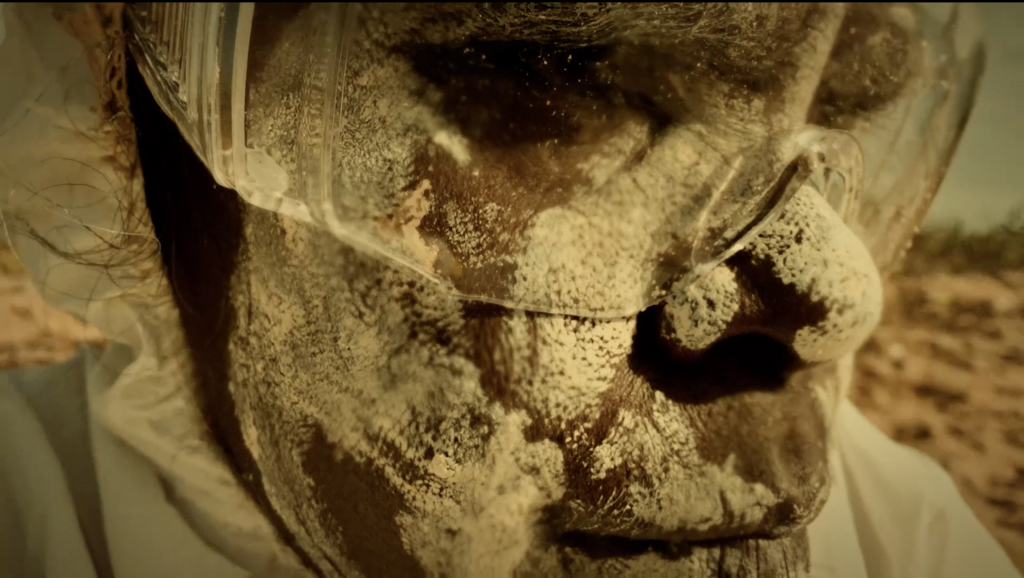
▴ Karrabing Collective, Mermaids or Aiden in Wonderland (2019) , Credit: Film still courtesy of the artists
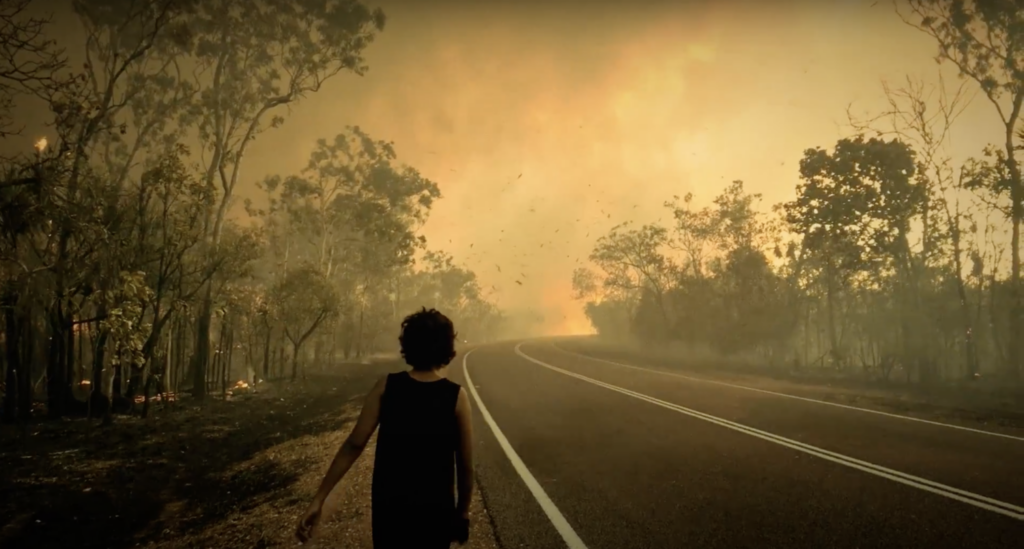
▴ Karrabing Collective, Mermaids or Aiden in Wonderland (2019) , Credit: Film still courtesy of the artists

▴ Karrabing Collective, Nightfishing with Ancestors (2023), Credit: Film still courtesy of the artists
Access
BSL
Live Captions
Live Stream
English Subtitles
The films will have English subtitles.
See general Access information for Episode 11: To End the World As We Know It event
Artists
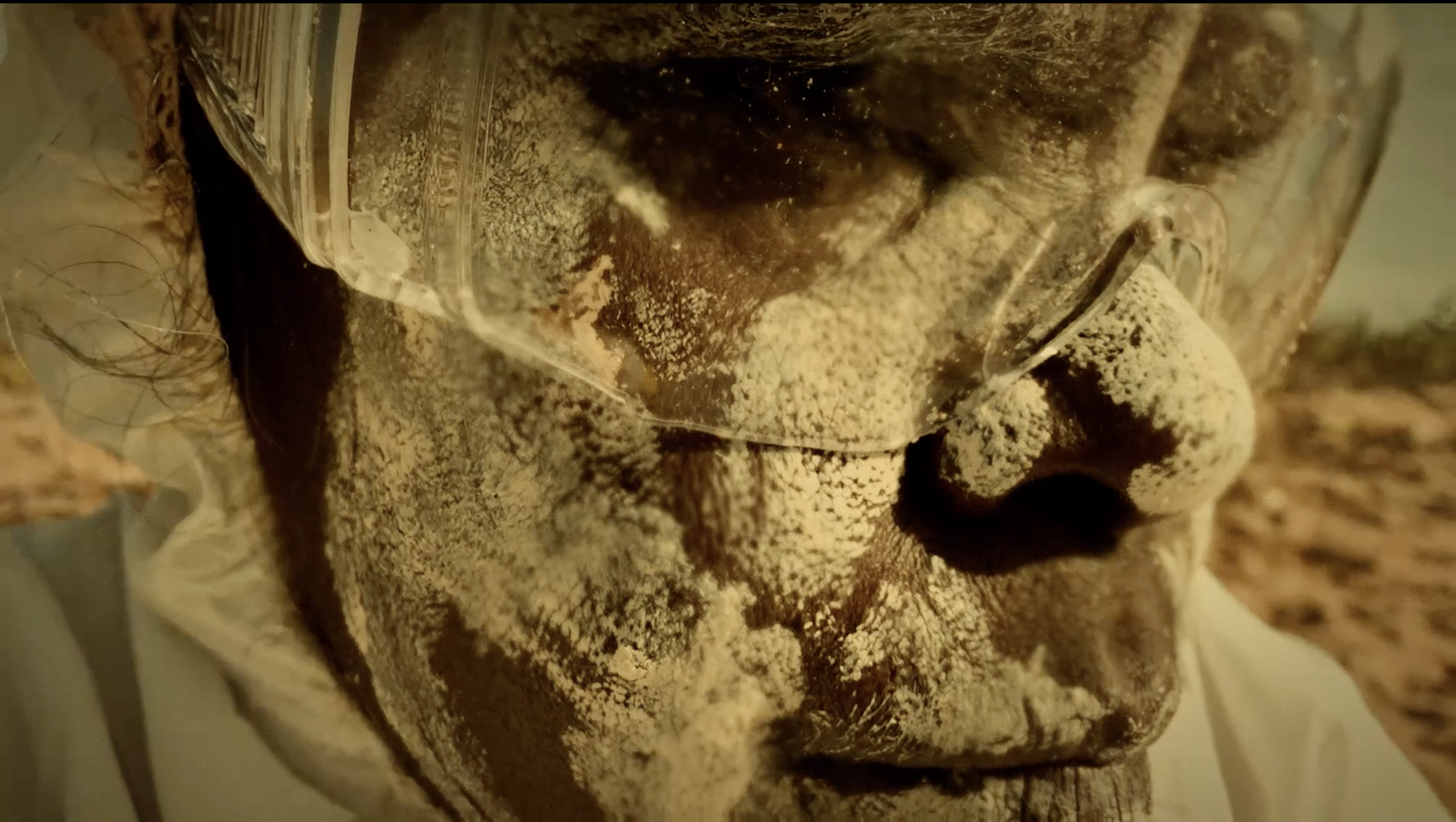
Karrabing Film Collective
